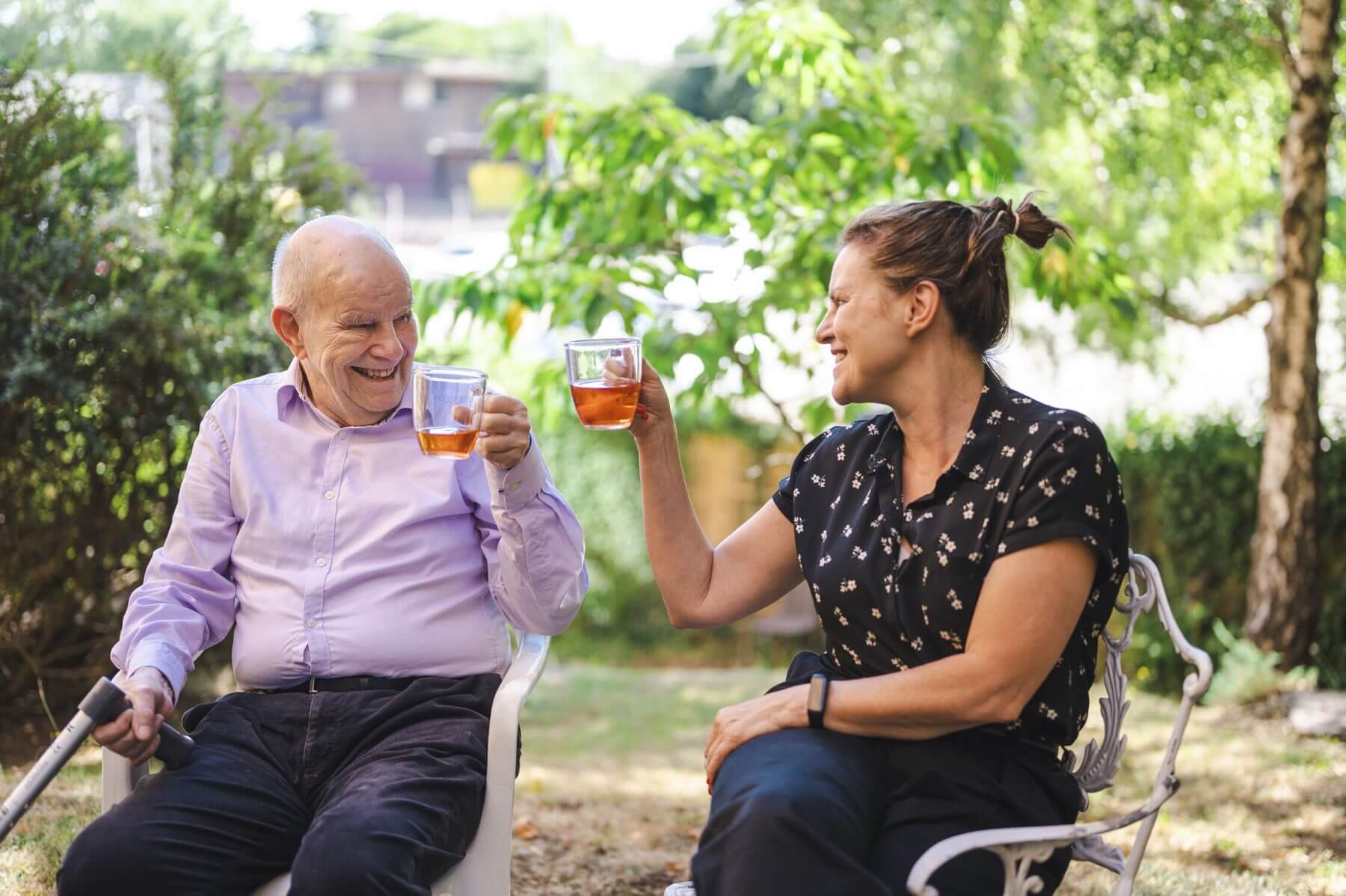Help and Tips for Caregivers in 2023

According to the Administration for Community Living (ACL), families are the primary source of support for older adults and people with disabilities in the U.S. Many caregivers work and also provide care, experiencing conflicts between these competing responsibilities. Research indicates that caregiving also exacts a significant emotional, physical, and financial toll. With nearly half of all caregivers older than age 50, many are vulnerable to a decline in their own health. Studies have shown that coordinated support services can reduce caregiver depression, anxiety, and stress, and enable them to provide care longer, which avoids or delays the need for costly institutional care.
The 2022 National Strategy to Support Family Caregivers (the “Strategy”), intended to serve as a national roadmap for better recognizing and supporting family and kinship caregivers of all ages, backgrounds, and caregiving situations, was developed jointly by the advisory councils established by the Recognize, Assist, Include, Support, and Engage (RAISE) Family Caregivers Act and the Supporting Grandparents Raising Grandchildren (SGRG) Act, with extensive input from family caregivers, the people they support, and other stakeholders. It includes nearly 350 actions the federal government will take to support family caregivers in the coming years and more than 150 actions that can be adopted at other levels of government and across the private sector to build a system to support family caregivers.
According to the Strategy, each year, around 53 million people provide a broad range of assistance to support the health, quality of life, and independence of a person close to them who needs assistance as they age, or due to a disability or chronic health condition. Another 2.7 million grandparent caregivers—and an unknown number of other relative caregivers—open their arms and homes each year to millions of children who cannot remain with their parents. Millions of older adults and people with disabilities would not be able to live in their communities without this essential support—and replacing it with paid services would cost an estimated $470 billion each year.
Caregivers’ financial future can also be put at risk; lost income due to family caregiving is estimated at $522 billion each year. When the challenges become overwhelming and family caregivers no longer can provide support, the people they care for are left with no choice, except moving to nursing homes and other institutions.
So while organizations like ACL work to support caregivers at the national level, how can caregivers take care of themselves and find the support they need, to then support the people they care for? The first step is to learn to accept help. One way to do this is to call LifePath at 413-773-5555, X1230, or 978-544-2259, X1230, to speak to a Resource Consultant, or to email info@LifePathMA.org. LifePath offers many different types of support for caregivers, and Resource Consultants can answer questions about in-home care services to help with care, pay for caregivers, caregiver grants, and caregiver support and respite, to name just a few options.
One caregiver explained, “Taking care of my sick husband was the most difficult and complicated job I have ever done. I went into it with confidence but after a few tough years, I was nearly crushed by the weight and expense. Unlike most jobs, there is never any time off. There are many hard decisions to make but few “thank yous.” Without help from LifePath in the form of the Savvy Caregiver course, a small stipend for daycare, and a free online caregiver support group, I am not sure I would have survived the last seven years, intact.”
Self-care is also important for caregivers, even if it feels like there is no time to practice it. Caregiver.com suggests caregivers think of the oft-repeated instructions we receive from flight attendants as a flight prepares for takeoff, reminding individuals to put oxygen masks on themselves before they take care of others, as what good would someone be to someone else if they were unconscious?
The University of California-San Francisco offers the following helpful “Self-Care for Caregivers” tips:
- Take time for yourself and your own needs. Watch for signs of stress, such as impatience, loss of appetite or difficulty with sleep, concentration or memory. Pay attention to changes in your mood, a loss of interest in usual activities, or an inability to accomplish usual tasks.
- Eat a well-balanced diet. Drink plenty of water every day.
- Exercise by taking short walks daily or at least three times a week.
- Listen to guided relaxation recordings or relaxing music.
- Schedule short rest periods between activities. Make it a priority to get a good night’s sleep.
- Set limits for what you can do.
- Don’t overload your daily to-do list. Be realistic.
- Find a few hours several times a week for activities that you find meaningful and enjoyable.
- Let family members and friends help with household chores, meal preparation, childcare, and shopping.
- Keep the lines of communication open among your loved one, you, your family and friends, and the health care team.
- Share your feelings with family members or other caregivers, or join a support group.
- Give yourself credit: The care you give does make a difference.
If you are a caregiver, remember you are not alone: you are one of the over 53 million nationwide, providing the most important service to another human being that you can. LifePath is here to help you get started on a more feasible and gentler caregiving path in 2023. Call us at 413-773-5555, X1230, or 978-544-2259, X1230, to find out more.